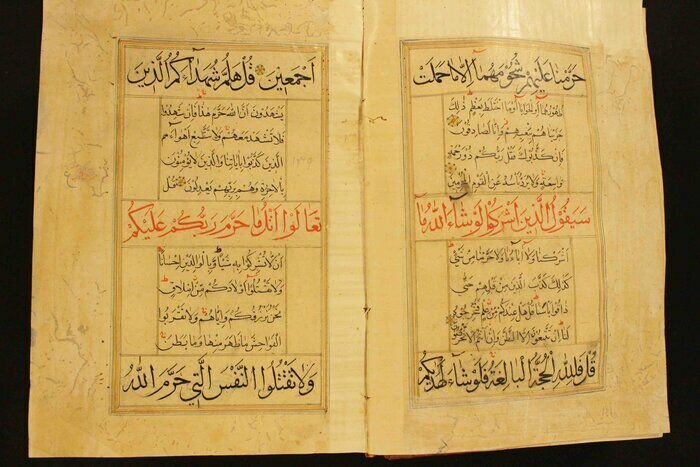Rare Quran manuscripts made national heritage

TEHRAN –A total of seven sets of manuscripts of the Holy Quran have recently been inscribed on the national cultural heritage list.
Dating from the Safavid era (1501–1736) to the Qajar period (1789-1925), the manuscripts are being kept at the Museum of Hajj and Pilgrimage Organization in Qom province, the provincial tourism chief said on Thursday.
“Adding these valuable moveable properties to the national heritage list could benefit their owners,” Alireza Arjmandi added.
Situated adjacent to salt-covered deserts, golden dunes, running sands, and jagged mountains, Qom is home to major religious madrasas (schools) as well.
Apart from sightseers and pilgrims who visit Qom to pay homage, it is also a top destination for Shia scholars and students who come from across the world to learn Islamic studies at its madrasas and browse through eminent religious bookshops.
Qom, which its antiquity goes back to the Sassanid era (224 CE–651), has many must-see destinations such as historical mosques, mansions, and natural sceneries scattered across the city as well as towns and villages nearby.
One of the most visited natural spots of Qom is Hoz-e Soltan, an eye-catching salt lake is in the middle of the desert. The visitors could easily walk in the shallow parts and enjoy the shapes created by the salt, however, the center of the lake could be dangerous, as it is muddy and could easily trap people.
ABU/AFM
Leave a Comment